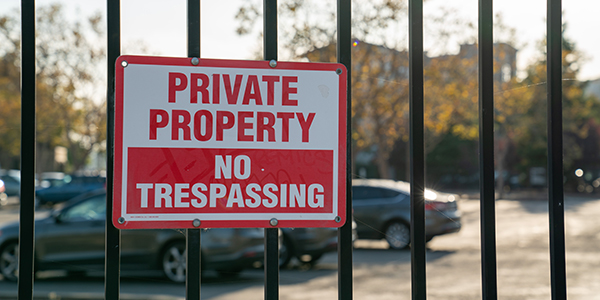
15 Nov Access Agreements: What They Are and Why They’re Important
Access agreements are often part of a site investigation and/or site remediation. In New Jersey, when contamination migrates from the property of the Responsible Party (RP) onto a neighboring property, the RP is legally obligated to pursue the impacts to determine if further action is required. To enter someone else’s property, an access agreement must be negotiated.
An access agreement is a signed contract between the RP and the Neighboring Property (NP) owner that details the terms and conditions for granting access to the NP. The New Jersey Department of Environmental Protection (NJDEP) requires access agreements to be signed when an environmental consultant is hired to investigate a neighboring property for contamination. The agreement outlines the limitations of access and the liabilities of both parties. This ordinarily requires legal involvement because the obligations and potential risks for the RP differ from those of the NP.
New Jersey law requires the RP to send access agreement request letters to each neighboring property owner believed to be affected by the impacts migrating from the RP’s property. The letter must provide sufficient detail for a layperson to understand the nature of the contamination, why access to the property is needed, how the investigation/remediation on the property will be conducted, where the investigation/remediation will be located (including a map), the estimated duration of the investigation, and when the sample results will be available. The letter must also request that the property owner respond in writing within 30 days.
Ideally, the NP grants access and the investigation moves forward amicably. More often, access agreements can become contentious. Sometimes the NP responds with requests that must be resolved prior to granting access. Following is a list of some of the more common NP requests:
- Proof of safety training prior to entering their property
- Changes in the number of samples taken
- Request for additional information, including copies of prior reports
- Access to the data generated
- A meeting with the RP’s consultant
- Complete the work during off-hours
If the NP fails to respond to the initial request, a second request letter is sent 30 days after the first. If the NP still does not respond, the RP can ask the municipality to intervene. If municipal intervention fails, then the RP must seek an order from the Superior Court to gain access to the NP. Or, if an NP denies access, the RP must then request an order from the Superior Court. Seeking a court order normally requires an attorney’s assistance. In some rare instances, the simple request for access could degrade into a trial that could potentially require expert testimony and technical peer reviews
When a property owner receives an access agreement request, it may be prudent for them to retain an environmental consultant and/or an environmental attorney. As mentioned above, access agreement requests are summaries written for the layperson. They rarely include minute details that could be important. Here is an abbreviated list of some of the issues that the NP owner needs to be aware of before signing an access agreement:
- Why is access being requested?
- What is the scope of the investigation?
- What are the contaminants of concern?
- Do you store, use, or produce (past or present) any contaminants of concern on your property?
- Do the contaminants of concern pose any potential health and safety impacts?
- Was there an environmental remediation project previously closed on your property?
- Are you currently undergoing your own environmental investigation or remediation project?-Are you currently planning to lease or sell your property?
If the NP owner is unsure if their property is contaminated, then it may be prudent to have an environmental consultant conduct a Preliminary Assessment (PA) on your behalf. The PA will examine in detail your property’s current and historical operations, including the nature of environmental projects that may have been previously performed on site. The PA will also determine if neighboring sites have been remediated.
As you can see, a simple request to gain access to a neighboring property can open a can of worms. This is why NPs will often retain an environmental attorney to identify their risks and protect their interests. Their environmental attorney will also review the proposed scope of the investigation because a property owner doesn’t want to allow excessive sampling or sampling in areas beyond the anticipated extent of the contaminant plume. It is also important to limit the extent of the chemicals being analyzed. The property owner does not want a chemical to be identified that is unrelated to the impacts cited in the access agreement. If contamination unrelated to the neighboring property’s contaminants is found during the RP’s investigation, it may need to be reported to the NJDEP, triggering an unplanned investigation.
Clearly, access agreements are important and must be taken seriously. Property owners can protect themselves by retaining an experienced environmental consultant like ESA, along with a highly qualified environmental attorney.



